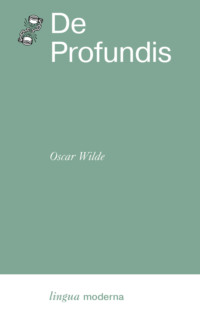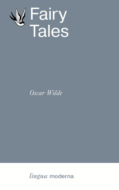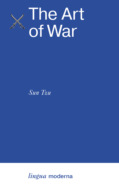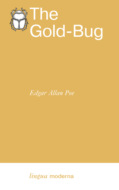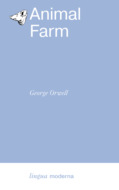Kitabı oku: «De Profundis»
© ООО «Издательство АСТ», 2023
To Lord Alfred Douglas
MS B M.
[January-March 1897]
H. M. Prison Reading
Dear Bosie, After long and fruitless waiting I have determined to write to you myself, as much for your sake as for mine, as I would not like to think that I had passed through two long years of imprisonment without ever having received a single line from you, or any news or message even, except such as gave me pain.
Our ill-fated and most lamentable friendship has ended in rum and public infamy for me, yet the memory of our ancient affection is often with me, and the thought that loathing, bitterness and contempt should forever take that place m my heart once held by love is very sad to me: and you yourself will, I think, feel in your heart that to write to me as I lie in the loneliness of prison-life is better than to publish my letters without my permission or to dedicate poems to me unasked, though the world will know nothing of whatever words of grief or passion, of remorse or indifference you may choose to send as your answer or your appeal.
I have no doubt that in this letter in which I have to write of your life and of mine, of the past and of the future, of sweet things changed to bitterness and of bitter things that may be turned into joy, there will be much that will wound your vanity to the quick. If it prove so, read the letter over and over again till it kills your vanity. If you find in it something of which you feel that you are unjustly accused, remember that one should be thankful that there is any fault of which one can be unjustly accused. If there be in it one single passage that brings tears to your eyes, weep as we weep in prison where the day no less than the night is set apart for tears. It is the only thing that can save you If you go complaining to your mother, as you did with reference to the scorn of you I displayed in my letter to Robbie, so that she may flatter and soothe you back into self-complacency оr conceit, you will be completely lost. If you find one false excuse for yourself, you will soon find a hundred, and be just what you were before. Do you still say, as you said to Robbie in your answer, that I “attribute unworthy motives” to you? Ah! you had no motives in life. You had appetites merely. A motive is an intellectual aim. That you were “very young” when our friendship began? Your defect was not that you knew so little about life, but that you knew so much. The morning dawn of boyhood with its delicate bloom, its clear pure light, its joy of innocence and expectation you had left far behind. With very swift and running feet you had passed from Romance to Realism. The gutter and the things that live in it had begun to fascinate you. That was the origin of the trouble in which you sought my aid, and I, so unwisely according to the wisdom of this world, out of pity and kindness gave it to you. You must read this letter right through, though each word may become to you as the fire or knife of the surgeon that makes the delicate flesh burn or bleed. Remember that the fool in the eyes of the gods and the fool in the eyes of man arc very different. One who is entirely ignorant of the modes of Art in its revolution or the moods of thought in its progress, of the pomp of the Latin line or the richer music of the vowelled Greek, of Tuscan sculpture or Elizabethan song may yet be full of the very sweetest wisdom. The real fool, such as the gods mock or mar, is he who does not know himself. I was such a one too long. You have been such a one too long. Be so no more. Do not be afraid. The supreme vice is shallowness. Everything that is realised is right. Remember also that whatever is misery to you to read, is still greater misery to me to set down. To you the Unseen Powers have been very good. They have permitted you to see the strange and tragic shapes of Life as one sees shadows in a crystal. The head of Medusa that turns living men to stone, you have been allowed to look at in a mirror merely. You yourself have walked free among the flowers. From me the beautiful world of colour and motion has been taken away.
I will begin by telling you that I blame myself terribly. As I sit here in this dark cell in convict clothes, a disgraced and ruined man, I blame myself. In the perturbed and fitful nights of anguish, in the long monotonous days of pain, it is myself I blame. I blame myself for allowing an unintellectual friendship, a friendship whose primary aim was not the creation and contemplation of beautiful things, to entirely dominate my life. From the very first there was too wide a gap between us. You had been idle at your school, worse than idle at your university. You did not realise that an artist, and especially such an artist as I am, one, that is to say, the quality of whose work depends on the intensification of personality, requires for the development of his art the companionship of ideas, and intellectual atmosphere, quiet, peace, and solitude. You admired my work when it was finished you enjoyed the brilliant successes of my first nights, and the brilliant banquets that followed them you were proud, and quite naturally so, of being the intimate friend of an artist so distinguished: but you could not understand the conditions requisite for the production of artistic work. I am not speaking in phrases of rhetorical exaggeration but in terms of absolute truth to actual fact when I remind you that during the whole time we were together I never wrote one single line. Whether at Torquay, Goring, London, Florence or elsewhere, my life, as long as you were by my side, was entirely sterile and uncreative. And with but few intervals you were, I regret to say, by my side always.
I remember, for instance, in September ’93, to select merely one instance out of many, taking a set of chambers, purely in order to work undisturbed, as I had broken my contract with John Hare for whom I had promised to write a play, and who was pressing me on the subject. During the first week you kept away. We had, not unnaturally indeed, differed on the question of the artistic value of your translation of Salome, so you contented yourself with sending me foolish letters on the subject. In that week I wrote and completed in every detail, as it was ultimately performed, the first act of An Ideal Husband. The second week you returned and my work practically had to be given up. I arrived at St James’s Place every morning at 11.30, in order to have the opportunity of thinking and writing without the interruptions inseparable from my own household, quiet and peaceful as that household was. But the attempt was vain. At twelve o’clock you drove up, and stayed smoking cigarettes and chattering till 1.30, when I had to take you out to luncheon at the Café Royal or the Berkeley. Luncheon with its liqueurs lasted usually till 3.30. For an hour you retired to White’s. At tea-time you appeared again, and stayed till it was time to dress for dinner. You dined with me either at the Savoy or at Tite Street. We did not separate as a rule till after midnight, as supper at Willis’s had to wind up the entrancing day. That was my life for those three months, every single day, except during the four days when you went abroad. I then, of course, had to go over to Calais to fetch you back. For one of my nature and temperament it was a position at once grotesque and tragic.
You surely must realise that now? You must see now that your incapacity of being alone: your nature so exigent in its persistent claim on the attention and time of others: your lack of any power of sustained intellectual concentration: the unfortunate accident-for I like to think it was no more-that you had not yet been able to acquire the “Oxford temper” in intellectual matters, never, I mean, been one who could play gracefully with ideas but had arrived at violence of opinion merely-that all these things, combined with the fact that your desires and interests were in Life not in Art, were as destructive to your own progress in culture as they were to my work as an artist? When I compare my friendship with you to my friendship with such still younger men as John Gray and Pierre Louys I feel ashamed. My real life, my higher life was with them and such as they.
Of the appalling results of my friendship with you I don’t speak at present. I am thinking merely of its quality while it lasted. It was intellectually degrading to me. You had the rudiments of an artistic temperament in its germ. But I met you either too late or too soon, I don’t know which. When you were away I was all right. The moment, in the early December of the year to which I have been alluding, I had succeeded in inducing your mother to send you out of England,I collected again the torn and ravelled web of my imagination, got my life back into my own hands, and not merely finished the three remaining acts of An Ideal Husband, but conceived and had almost completed two other plays of a completely different type, the Florentine Tragedy and La Sainte Courtisane, when suddenly, unbidden, unwelcome, and under circumstances fatal to my happiness you returned. The two works left then imperfect I was unable to take up again. The mood that created them I could never recover. You now, having yourself published a volume of verse, will be able to recognise the truth of everything I have said here. Whether you can or not it remains as a hideous truth in the very heart of our friendship. While you were with me you were the absolute ruin of my Art, and in allowing you to stand persistently between Art and myself I give to myself shame and blame in the fullest degree. You couldn’t know, you couldn’t understand, you couldn’t appreciate. I had no right to expect it of you at all. Your interests were merely in your meals and moods. Your desires were simply for amusements, for ordinary or less ordinary pleasures. They were what your temperament needed, or thought it needed for the moment. I should have forbidden you my house and my chambers except when I specially invited you. I blame myself without reserve for my weakness. It was merely weakness. One half-hour with Art was always more to me than a cycle with you. Nothing really at any period of my life was ever of the smallest importance to me compared with Art. But in the case of an artist, weakness is nothing less than a crime, when it is a weakness that paralyses the imagination.
I blame myself again for having allowed you to bring me to utter and discreditable financial ruin. I remember one morning in the early October of ’92 sitting in the yellowing woods at Bracknell with your mother. At that time I knew very little of your real nature. I had stayed from a Saturday to Monday with you at Oxford. You had stayed with me at Cromer for ten days and played golf. The conversation turned on you, and your mother began to speak to me about your character. She told me of your two chief faults, your vanity, and your being, as she termed it, “all wrong about money” I have a distinct recollection of how I laughed. I had no idea that the first would bring me to prison, and the second to bankruptcy. I thought vanity a sort of graceful flower for a young man to wear, as for extravagance-for I thought she meant no more than extravagance-the virtues of prudence and thrift were not in my own nature or my own race. But before our friendship was one month older I began to see what your mother really meant. Your insistence on a life of reckless profusion: your incessant demands for money your claim that all your pleasures should be paid for by me whether I was with you or not brought me after some time into serious monetary difficulties, and what made the extravagances to me at any rate so monotonously uninteresting, as your persistent grasp on my life grew stronger and stronger, was that the money was really spent on little more than the pleasures of eating, drinking, and the like. Now and then it is a joy to have one’s table red with wine and roses, but you outstripped all taste and temperance. You demanded without grace and received without thanks. You grew to think that you had a sort of right to live at my expense and in a profuse luxury to which you had never been accustomed, and which for that reason made your appetites all the more keen, and at the end if you lost money gambling in some Algiers Casino you simply telegraphed next morning to me in London to lodge the amount of your losses to your account at your bank, and gave the matter no further thought of any kind.
When I tell you that between the autumn of 1892 and the date of my imprisonment I spent with you and on you more than £5000 in actual money, irrespective of the bills I incurred, you will have some idea of the sort of life on which you insisted. Do you think I exaggerate? My ordinary expenses with you for an ordinary day in London-for luncheon, dinner, supper, amusements, hansoms and the rest of it-ranged from £12 to £20, and the week’s expenses were naturally in proportion and ranged from £80 to £130. For our three months at Goring my expenses (rent of course included) were £1340. Step by step with the Bankruptcy Receiver I had to go over every item of my life. It was horrible. “Plain living and high thinking” was, of course, an ideal you could not at that time have appreciated, but such extravagance was a disgrace to both of us. One of the most delightful dinners I remember ever having had is one Robbie and I had together in a little Soho café, which cost about as many shillings as my dinners to you used to cost pounds. Out of my dinner with Robbie came the first and best of all my dialogues. Idea, title, treatment, mode, everything was struck out at a 3 franc 50 c. table-d’hôte. Out of the reckless dinners with you nothing remains but the memory that too much was eaten and too much was drunk. And my yielding to your demands was bad for you. You know that now. It made you grasping often: at times not a little unscrupulous: ungracious always. There was on far too many occasions too little joy or privilege in being your host. You forgot-I will not say the formal courtesy of thanks, for formal courtesies will strain a close friendship-but simply the grace of sweet companionship, the charm of pleasant conversation, that τερπνὸν κακόν as the Greeks called it, and all those gentle humanities that make life lovely, and are an accompaniment to life as music might be, keeping things in tune and filling with melody the harsh or silent places. And though it may seem strange to you that one in the terrible position in which I am situated should find a difference between one disgrace and another, still I frankly admit that the folly of throwing away all this money on you, and letting you squander my fortune to your own hurt as well as to mine, gives to me and in my eyes a note of common profligacy to my Bankruptcy that makes me doubly ashamed of it. I was made for other things.
But most of all I blame myself for the entire ethical degradation I allowed you to bring on me. The basis of character is will-power, and my will-power became absolutely subject to yours. It sounds a grotesque thing to say, but it is none the less true. Those incessant scenes that seemed to be almost physically necessary to you, and in which your mind and body grew distorted and you became a thing as terrible to look at as to listen to that dreadful mania you inherit from your father, the mania for writing revolting and loathsome letters: your entire lack of any control over your emotions as displayed in your long resentful moods of sullen silence, no less than in the sudden fits of almost epileptic rage, all these things in reference to which one of my letters to you, left by you lying about at the Savoy or some other hotel and so produced in Court by your father’s Counsel, contained an entreaty not devoid of pathos, had you at that time been able to recognise pathos either in its elements or its expression-these, I say, were the origin and causes of my fatal yielding to you in your daily increasing demands. You wore one out. It was the triumph of the smaller over the bigger nature. It was the case of that tyranny of the weak over the strong which somewhere in one of my plays I describe as being “the only tyranny that lasts.”
And it was inevitable. In every relation of life with others one has to find some moyen de vivre. In your case, one had either to give up to you or to give you up. There was no other alternative. Through deep if misplaced affection for you: through great pity for your defects of temper and temperament: through my own proverbial good-nature and Celtic laziness, through an artistic aversion to coarse scenes and ugly words through that incapacity to bear resentment of any kind which at that time characterised me through my dislike of seeing life made bitter and uncomely by what to me, with my eyes really fixed on other things, seemed to be mere trifles too petty for more than a moment’s thought or interest-through these reasons, simple as they may sound, I gave up to you always. As a natural result, your claims, your efforts at domination, your exactions grew more and more unreasonable. Your meanest motive, your lowest appetite, your most common passion, became to you laws by which the lives of others were to be guided always, and to which, if necessary, they were to be without scruple sacrificed. Knowing that by making a scene you could always have your way, it was but natural that you should proceed, almost unconsciously I have no doubt, to every excess of vulgar violence. At the end you did not know to what goal you were hurrying, or with what aim in view. Having made your own of my genius, my will-power, and my fortune, you required, in the blindness of an inexhaustible greed, my entire existence. You took it. At the one supremely and tragically critical moment of all my life, just before my lamentable step of beginning my absurd action, on the one side there was your father attacking me with hideous cards left at my club, on the other side there was you attacking me with no less loathsome letters. The letter I received from you on the morning of the day I let you take me down to the Police Court to apply for the ridiculous warrant for your father’s arrest was one of the worst you ever wrote, and for the most shameful reason. Between you both I lost my head. My judgment forsook me. Terror took its place. I saw no possible escape, I may say frankly, from either of you. Blindly I staggered as an ox into the shambles. I had made a gigantic psychological error. I had always thought that my giving up to you in small things meant nothing: that when a great moment arrived I could reassert my will-power in its natural superiority. It was not so. At the great moment my will-power completely failed me. In life there is really no small or great thing. All things are of equal value and of equal size. My habit-due to indifference chiefly at first-of giving up to you in everything had become insensibly a real part of my nature. Without my knowing it, it had stereotyped my temperament to one permanent and fatal mood. That is why, in the subtle epilogue to the first edition of his essays, Pater says that “Failure is to form habits.” When he said it the dull Oxford people thought the phrase a mere wilful inversion of the somewhat wearisome text of Aristotelian Ethics, but there is a wonderful, a terrible truth hidden in it I had allowed you to sap my strength of character, and to me the formation of a habit had proved to be not Failure merely but Ruin. Ethically you had been even still more destructive to me than you had been artistically.
Ücretsiz ön izlemeyi tamamladınız.
